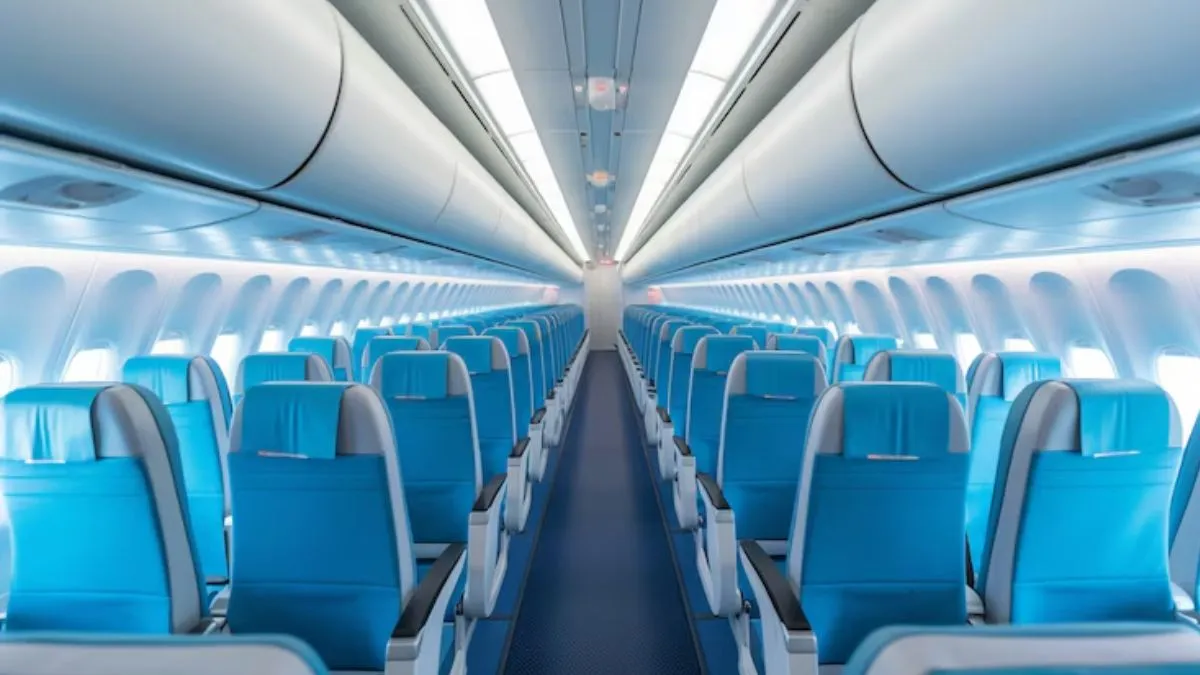- By Supratik Das
- Fri, 01 Aug 2025 03:14 PM (IST)
- Source:JND
Row 13 on airplanes: In a detail overlooked by tourists, several airlines across the globe choose to omit row number 13 in their seating charts. What seems to be an error is actually a deliberate decision based on long-standing global superstitions, most notably the general fear of the number 13, or triskaidekaphobia.
Why Is Number 13 Not Used In Airplanes?
The superstition that 13 is unlucky has a long history. The term triskaidekaphobia was first documented in an American psychology journal as early as 1911, according to historical accounts. The superstition is religious and cultural. From the Last Supper, when Judas, who was thought to be the 13th member, betrayed Jesus, to Norse mythology and folklore, the number 13 has been linked to bad luck for centuries. To help nervous or superstitious passengers feel more at ease, several airlines skip row 13 entirely. As a result, aircraft seat numbers often jump directly from 12 to 14.
Superstitions influencing seat numbering are not only about the number 13. In Italy and Brazil, for example, the number 17 is similarly considered to be unlucky. In Roman numerals, 17 is represented as XVII, and this can be rearranged to produce the Latin word VIXI, a phrase that has been interpreted in the past as a death euphemism meaning "I have lived." German carrier Lufthansa, which serves a broad spectrum of international travelers, has openly shared its culturally sensitive practices. "Row 13 and row 17 are missing because these are bad luck numbers," Lufthansa tweeted in 2017, employing the hashtag #bettersafethansorry.
Airlines That Avoid Row 13 And Sometimes 17
Based on aviation reports and news sources like SimplyFlying.com, the following major carriers exclude row 13 on specific aircraft models:
European Carriers:
• Lufthansa
• Ryanair
• Iberia
• ITA Airways
• KLM
• Air France
Middle Eastern Carriers:
• Emirates
• Qatar Airways
Asian Carriers:
• Singapore Airlines
• Cathay Pacific
• Thai Airways
• Hong Kong Airlines
In some aircraft, particularly on long-haul or international routes, both rows 13 and 17 may be missing. Unlike their Asian and European counterparts, not all US-based carriers follow the superstition. American Airlines, Delta, and Southwest have row 13 included. United Airlines, however, misses both rows 13 and 14 on some models. This change is based mainly on Chinese numerology, in which the number 14 is pronounced the same as "will die" in certain dialects. In the UK, Virgin Atlantic skips row 13, but British Airways, easyJet, and Jet2.com do not do the same.
ALSO READ: Did You Know? This Country Has No Airport, No Currency, Yet Richer Than UK and Safer Than Japan
Passenger And Pilot Rituals
Seat numbering is only one of how superstition affects flight. Travelers will sometimes have personal rituals to reassure themselves. In a Euro News report, approximately 17% of travelers report feeling less stressed after touching the plane's body before getting on. Others do not fly on Friday the 13th, a day that many people consider to be unlucky. Interestingly, flights from Europe to the UK are said to be as much as 39% cheaper on Friday the 13th, since some travelers shun flying on that day. Pilots also have their superstitions; many adhere to pre-flight routines like eating the same meal or knocking on the aircraft wing before take-off.
ALSO READ: Did You Know? These Countries Are Creating Millionaires Faster Than US And India
While contemporary aviation has its roots in science, technology, and rigorous safety protocols, airlines also try to make small concessions to honor cultural beliefs. Bypassing row 13 or 17 might seem negligible, yet to some travelers, these details help ease anxiety so making the overall flying experience a little more pleasant.

